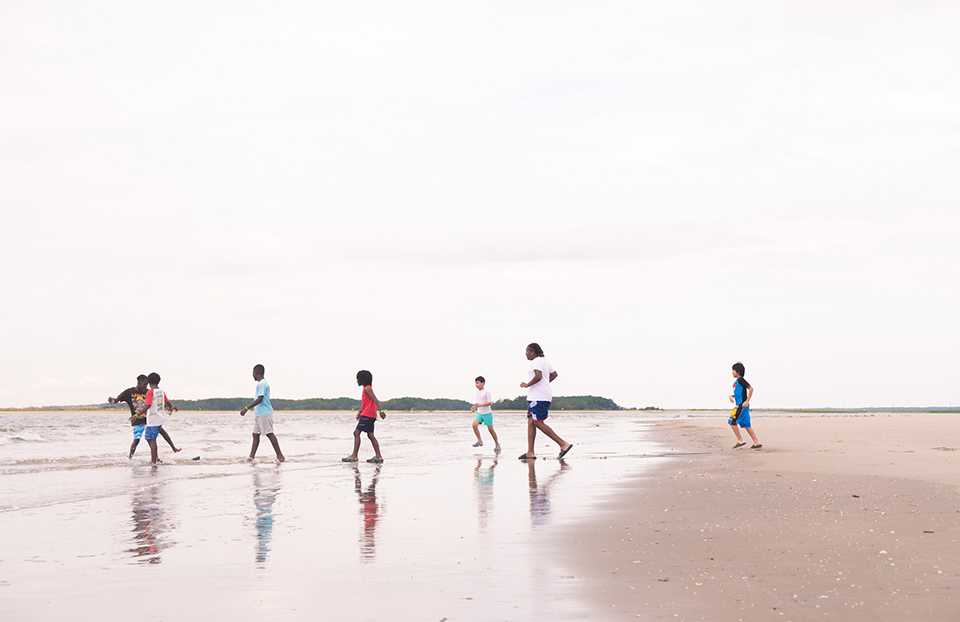Why Milena Acosta Volunteers at Intel ISEF
Milena Acosta is the Co-Chair of the Los Angeles Local Arrangements Committee (LAC). The LAC helps recruit judges and volunteers for the Intel International Science and Engineering Fair (Intel ISEF). Milena is particularly involved in activities related to the Education Outreach Program, where local students and teachers get a chance to meet Intel ISEF finalists and participate in activities specifically designed with them in mind.
As the Education Outreach Supervisor at the Aquarium of the Pacific, I look for ways to unite and interface with the scientific community outside the walls of our Aquarium. I was first introduced to Intel ISEF in the fall of 2011 and remember feeling immediately drawn to the uniqueness of the event and appreciating its positive global impact. [Intel ISEF finalists come from more than 70 countries, regions, and territories.]
I quickly resolved to play whatever role I could to help. That year, I primarily supported the Education Outreach Program in Los Angeles and helped serve more than 3,000 local middle and high school students who attended the fair and participated in Forensic Science-themed labs.
Since 2011, my participation and role with Intel ISEF has grown and now, three years later, I am the co-chair for the Los Angeles Local Arrangements Committee. This role entails the recruitment of organizations, universities, and individuals that can help support our volunteer, interpreter, and judging needs. [More than 1,000 judges, 500 general volunteers, and 200 interpreters are needed throughout the week.]
Though the immensity of the event is impressive and the personnel are fantastic, I can honestly say that I am drawn to volunteering my time because of the student finalists. These students embody such an incredible level of dedication and commitment and bring forward new approaches and perspectives to their fields of study.
One of my most memorable moments with Intel ISEF occurred during my first year’s involvement in 2011. Two months prior to Intel ISEF, I judged the Los Angeles County Science Fair in the Animal Biology category. I met the most amazing high school student, Adrienne McColl. Adrienne was investigating ways to restore the declining population of the Southern California Spiny lobster. Her research centered around lobster larvae and she succeeded in keeping the larvae alive for 129 days, far surpassing the record of any professional scientist by more than two months.
Given this impressive accomplishment, I along with the other judges, agreed that Adrienne should be nominated to attend Intel ISEF. Not only did Adrienne go onto compete in Intel ISEF 2011, but she won Best in Category for her research. To this day, Adrienne and I stay in touch. She is pursuing her degree in Aquatic and Fishery Science at the University of Washington. Most recently we are working on developing a way to showcase her research with the public at the Aquarium of the Pacific though a hands-on activity for guests.
Adrienne embodies the spirit of independent research and is a prime example of why I volunteer my time to Intel ISEF. It is this marriage of opportunity, which Intel ISEF affords, and capability, that students strive to achieve, that make volunteering a great investment for my community. Only here can a Southern California student present her science next to her peers from more than 70 different countries. Not only does this event introduce global competition, but there are multiple examples of how our local communities benefit from this event. Local students not only participate as finalists, but thousands of students will get the opportunity to participate in the Education Outreach Program, exposing them to interesting projects and ideas.
In an effort to continue building, and ultimately benefitting, the local scientific community we need to have members from our communities step up as judges and volunteers at Intel ISEF. Events like this help create and encourage the next generation of scientists, who then can begin to pave the way for the next generation after them. I firmly believe that experiencing Intel ISEF just once will help local scientists witness how this event champions and celebrates young scientists in a way that is life-changing for students. And finally, I believe that community service and volunteerism are an investment in our community and the people who live in it.
Interested in volunteering at Intel ISEF this May? Find more information and register online or contact us at isefvolunteer@societyforscience.org.


